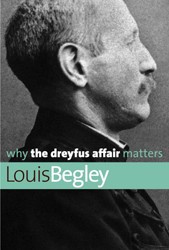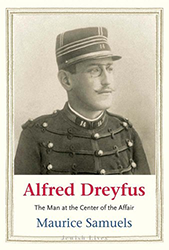Taking the Dreyfus case as her point of departure, Ruth Harris has written a devastating book that goes far beyond that issue.
Alfred Dreyfus was, of course, the French Jewish officer who, in 1894, was framed by his army, convicted of treason and condemned to a brutal imprisonment on Devil’s Island. High-ranking army officers conspired to forge masses of evidence to cover up for the real culprit, one of their own, and to inflame the public, which responded, against Jews and anyone who questioned “our noble army.”
By now, in this long, meticulously researched volume, Harris’ argument has emerged. The country’s angry agitation stems basically from its defeat by Germany in 1870 and its humiliating loss of Alsace-Lorraine. And who was at fault for that disaster? The eternal scapegoat, of course, the Jews.
Deploring “the potent language of hate,” Harris asks a troublesome question: how can a country preserve, or, if necessary, recapture civilized values when justice is perverted at the highest levels of society? She quotes one French gentleman: “How can we defend democracy against them?”
Finally, Dreyfus, physically broken, was freed and pardoned for the crime he hadn’t committed. Reinstated in the army, he received neither interim pay nor promotion for time in prison.
Written primarily for a scholarly audience, this is a thorough, serious treatment of a popular subject. Large libraries and academic shelves will want to carry it. Acknowledgements, bibliography, chronology.





